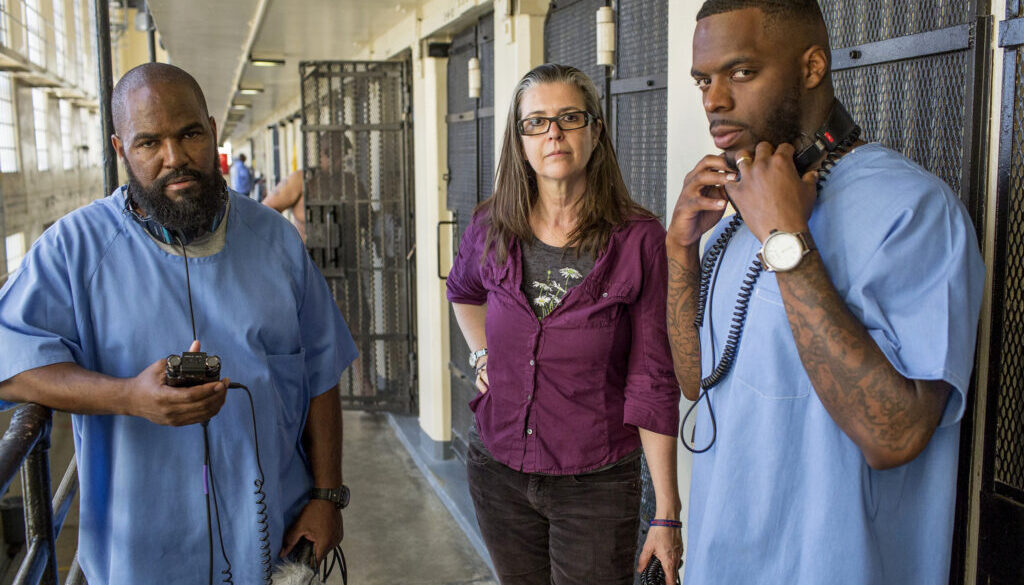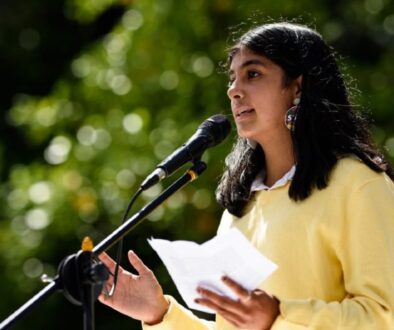A Peek into Life in Prison
‘[T]ogether, we’re gonna take you inside’
— Earlonne Woods
I recently read This is Ear Hustle, a unique glimpse into everyday life in prison. The authors, Earlonne Woods and Nigel Poor, are also co-hosts and co-producers of the podcast Ear Hustle. When they first started recording Ear Hustle in 2017, Earlonne was serving a 31-year to life sentence in San Quentin State Prison, just north of San Francisco. Nigel — a visual artist and teacher — was volunteering at San Quentin, teaching photography classes and helping inmates with media projects. Their co-founder Antwan Williams and co-host since 2019 — Rahsaan “New York” Thomas — have also spent time in San Quentin.
Ear Hustle was picked up after it won Radiotopia’s Podquest competition. It is now into its 9th season. Ear Hustle was the first podcast created and produced within the walls of a prison.

I first heard about Ear Hustle while watching a TEDx Talk given by Earlonne about the Three Strikes Law in California. During my law degree I took an interest in the systemic injustices embedded in the criminal justice system, both in Australia and the US (thus my google searching brought me to Earlonne’s video). I have researched the consequences of tough-on-crime approaches to wrongdoing and the problems that flow from incarceration. California’s Three Strikes Law is a prime example of a harsh, punitive response to crime which is incredibly unjust and has greatly contributed to mass incarceration (more on that later!)
Let’s Ear Hustle
As Earlonne explains in episode one, ‘ear hustling is prison slang for eavesdropping; listening in to something that may not be your business’. The podcast and book give people on the outside a chance to listen in and hear about life in prison — the good, the bad, the funny, the mundane, and the heartbreaking.
The book has a similar format to the podcast, with back and forth chat between Earlonne and Nigel, followed by interviews with inmates, their families or people who were formerly incarcerated. Each chapter and podcast follows a theme, like Alliances, Family, or 15-Minutes (referring to the allowed length of a phone call in San Quentin).

Their first episode of Ear Hustle is called Cellies. It’s all about navigating living in a small, cramped space with a cellmate. As Earlonne says, ‘in prison, it matters who your cellmate is’. Cellmates spend a lot of time together with only a 4 ft by 9 ft space to share (1.22 m by 2.74 m). Their cell is packed with 2 bunks, 2 lockers, a toilet, a sink, and both inmates’ property. The message: prison is a lot easier if you get on with your cellie.
I like how Earlonne and Nigel relate prison life back to life on the outside; building a bridge between those on the inside, and those on the outside. We’ve all experienced what it’s like learning to cohabitate with someone else, whether it’s a partner, your parents, or a housemate. But the stakes are much higher in prison. One interviewee said: ‘living with someone in an apartment is difficult enough, but living with someone in a box — you have to be compatible in a lot of different ways.’

I also like how they don’t focus solely on the doom and gloom of prison, but at the same time, they don’t skate over the extreme challenges that people face in prison. It’s just really honest. They touch on all manner of subjects, telling stories about various aspects of life on the inside. They tell stories about the friendships people forge, visits and calls from family, how race affects day-to-day life, what people have lost being locked up, the creative dishes that inmates cook, and how people got into crime in the first place. Big things, and small things.
What ties it all together is the chemistry between Earlonne and Nigel. The ease of conversation between the pair; the way they seamlessly bounce off one another. As we delve into a mix of people’s stories, we also slowly get to know the hosts themselves, and witness the strong friendship and working relationship they have forged. They have led very different lives, and yet through this project and their shared vision, they form a long-lasting relationship. It’s also helpful for the listener or reader to see their contrasting experiences come through; an insider’s and an outsider’s perspective.
What I like most about the book and the podcast is how they humanise people serving time. Inmates might have made some bad choices in the past, but they’re as human as the rest of us, trying to navigate the world in which they find themselves. Their crimes are not who they are; their crimes are not their identity. They are complex individuals with hopes and dreams, and something to offer to the world.

Fighting the Three Strikes Law in California
One chapter in This is Ear Hustle focuses on the unjust and excessively punitive Three Strikes Law that still exists in California today.
Earlonne was sentenced as a ‘Three Striker’ as they call them in San Quentin. He was given a 31-year to life sentence for attempted second-degree robbery, a charge that, if it weren’t for the Three Strikes Law, would have given him around 3 years in prison. In 2018, after serving 21 years, his sentence was commuted by California Governor Jerry Brown.
The Three Strikes Law was passed by voters in 1994 in response to two separate murders by repeat offenders in the early 90s. Under the original Three Strikes Law, if you had two previous ‘serious or violent’ felony convictions and were convicted of a third felony (whether violent or non-violent), you would face a mandatory minimum sentence of 25 years to life in prison.

Since voters passed Prop. 36 in 2012, the Three Strikes Law has only applied to people whose third felony convictions was also ‘serious or violent’ (unless their first or second strike was for rape, murder, or child molestation). People sentenced as Third Strikers prior to Prop. 36 for non-serious or non-violent crimes were also given the opportunity to be re-sentenced.
The rationale behind the law was to keep dangerous people off the streets. Instead, the law led to thousands of people facing a lifetime in prison for crimes that do not warrant decades behind bars, and in many cases, for crimes they committed at a very young age.

In addition, the Three Strikes Law disproportionately affects Black people and the Latinx community. It has also greatly increased the prison populations and prison spending — money that could otherwise be spent on social services that actually help to reduce crime.
Early on in his sentence, Earlonne started researching how to change the law. He decided that the best approach was to get the issue on the ballot in an election year. (In the US, if you get enough signatures, and raise enough money, you can have a proposed law voted on at an election). He started an organisation called CHOOSE1 which has been fighting ever since to allow Californians to vote out the Three Strikes Law.
Unfortunately the issue will not be on the ballot in the midterms this November.
No doubt CHOOSE1 and other organisations will continue the fight until this unjust law is repealed. Hopefully Californians will have a chance to vote out the Three Strikes Law in 2024.




